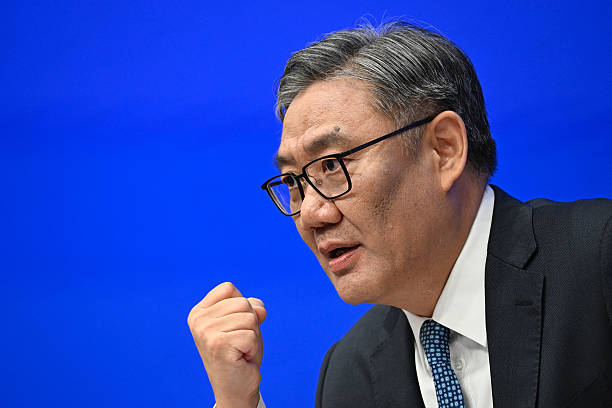
Apple logo displayed at Paris flagship store as company navigates AI delays and global tariff pressures. Sven Hoppe/picture alliance via Getty Images
Apple Earnings Face Headwinds from China Tariffs and AI Delays
Once seen as a model of supply chain efficiency, Apple’s global production footprint has come under pressure, including its recent struggles with UK government over demand to data Encryption, amid tightening U.S. trade policies.
President Donald Trump has imposed a 25% tariff on Indian imports effective August 1, a move that may impact Apple’s recent strategy to relocate iPhone manufacturing to India.
This production shift—meant to mitigate earlier China-focused tariffs—has already driven a 240% increase in Indian-assembled smartphones in Q2, according to data from industry research.
Analysts suggest the relocation might help limit Apple’s tariff exposure, potentially reducing the previously estimated $900 million impact.
However, ongoing geopolitical tensions between the U.S., China, and India continue to create an unstable backdrop for hardware manufacturers operating across multiple jurisdictions.
AI Strategy Delays Undermine Apple’s Competitive Edge
Apple’s deliberate pace in adopting artificial intelligence technologies is raising concern among investors and industry observers.
While competitors roll out devices powered by generative AI, Apple’s integration of advanced machine learning features—including its Apple Intelligence suite—remains limited.
The much-anticipated AI upgrade to Siri has been postponed to 2026, a delay that has amplified doubts about Apple’s ability to compete in the emerging AI economy.
Despite announcing a partnership with OpenAI for ChatGPT integration, the company’s AI deployment has lacked the scale and speed of rivals.
This conservative approach contrasts with the broader industry trend, where firms aggressively embed AI across product lines and consumer services.
China Smartphone Market Recovers, But Apple Faces Stiff Competition
Apple experienced moderate growth in China, its third-largest market, during the third quarter. According to Counterpoint Research, iPhone sales increased by 8%, spurred by government-backed trade-in incentives, festival discounts, and promotions for the iPhone 16 Pro.
This follows a 1.9% rise in the previous quarter.
However, the competitive landscape in China remains intense. Local smartphone makers, such as Honor, are incorporating advanced AI features into their devices, threatening Apple’s market share.
While Apple benefited temporarily from marketing efforts, long-term performance will likely depend on its ability to compete on AI innovation and localized services.
Services Segment Offers Apple a Stable Growth Avenue
Outside hardware, Apple’s services division continues to post strong performance. Analysts project a 10.7% revenue increase from services this quarter, slightly down from the 11.6% growth seen in Q2.
Offerings such as iCloud, Apple Music, and App Store subscriptions have helped the company diversify its revenue amid broader hardware slowdowns.
The resilience of Apple’s services portfolio remains a bright spot as it navigates hardware challenges, although services growth alone may not be sufficient to offset broader macroeconomic risks and innovation delays.
Tariff Pressures Remain a Major Earnings Risk Factor
The company’s extensive global manufacturing network is now a focal point of risk. Analysts believe Apple may have overestimated its tariff costs earlier this year, offering it an opportunity to surpass lowered expectations.
Still, the uncertainty surrounding future trade policies with both China and India adds pressure on the company’s operational strategy.
“Most companies we follow have made conservative assumptions by overestimating tariff costs,” said Jamie Meyers, senior analyst at Laffer Tengler Investments.
Apple’s ability to navigate these policy shifts while maintaining profitability will be closely watched in its upcoming earnings call.
The company may pivot toward new partnerships and manufacturing geographies in a few months or years from now, as it confronts increasing challenges facing its AI strategy and supply chain choices.
Any further delay in product innovation or technology rollouts could intensify investor concerns about its long-term positioning in a rapidly evolving tech landscape, speculators suggest.

